This initiative is a collaboration of the National Consumer Law Center (NCLC) and Harvard Law School’s Criminal Justice Policy Program (CJPP) and focuses on the financial costs of the criminal justice system, which can take a devastating toll on individuals and their families, as well as on society more broadly. The harms of excessive fines and fees disproportionately impact the poor and people of color. This project aims to equip advocates to meet the urgent challenges posed by criminal justice debt. The project consists of three parts:
Part 1: Confronting Criminal Justice Debt: The Urgent Need for Comprehensive Reform (NCLC and CJPP)
Part 2: Confronting Criminal Justice Debt: A Guide for Litigation (NCLC)
Part 3: Confronting Criminal Justice Debt: A Guide for Policy Reform (CJPP)
- Confronting Criminal Justice Debt Free Webinar Series Fall 2017 (cosponsored by The National Consumer Law Center and the Criminal Justice Policy Program at Harvard Law School)
(Sign up to be notified for future NCLC webinars; review archived webinars)

CONFRONTING CRIMINAL JUSTICE DEBT: THE URGENT NEED FOR COMPREHENSIVE REFORM |
|
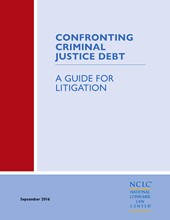 CONFRONTING CRIMINAL JUSTICE DEBT: A GUIDE FOR LITIGATION CONFRONTING CRIMINAL JUSTICE DEBT: A GUIDE FOR LITIGATION
NCLC has developed a Guide for Litigation to assist those who represent clients in criminal justice debt matters. The guide identifies a range of potential tools based in constitutional, criminal, and consumer protection law that attorneys may use in protecting clients from the harms of criminal justice debt practices. The categories of representation addressed include:
Additionally the Guide for Litigation includes checklists of key factual and legal issues for attorneys to consider when representing clients in criminal justice debt matters, and analysis of the underlying constitutional principles that animate much of the law in this area. |
|
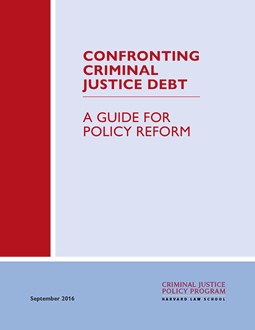
CONFRONTING CRIMINAL JUSTICE DEBT: A GUIDE FOR POLICY REFORM |
Published: September 8, 2016
RELATED BOOKS
| For Attorneys: | |||
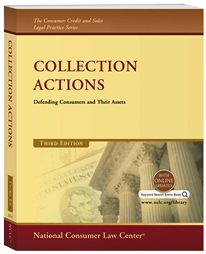 Collection Actions Collection Actions |
Continuing updates and additional information concerning criminal justice debt will be available for subscribers to this legal treatise. |
||
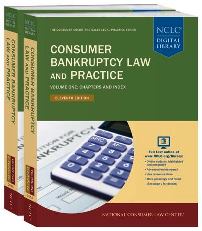 Consumer Bankruptcy Law and Practice Consumer Bankruptcy Law and Practice |
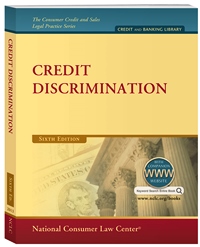 Credit Discrimination Credit Discrimination |
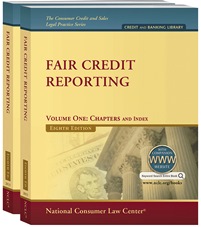 Fair Credit Reporting Fair Credit Reporting |
 Fair Debt Collection Fair Debt Collection |
| For Consumers: | |||
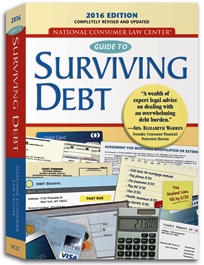 Guide to Surviving Debt Guide to Surviving Debt |
|||
